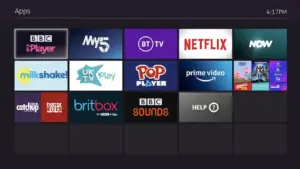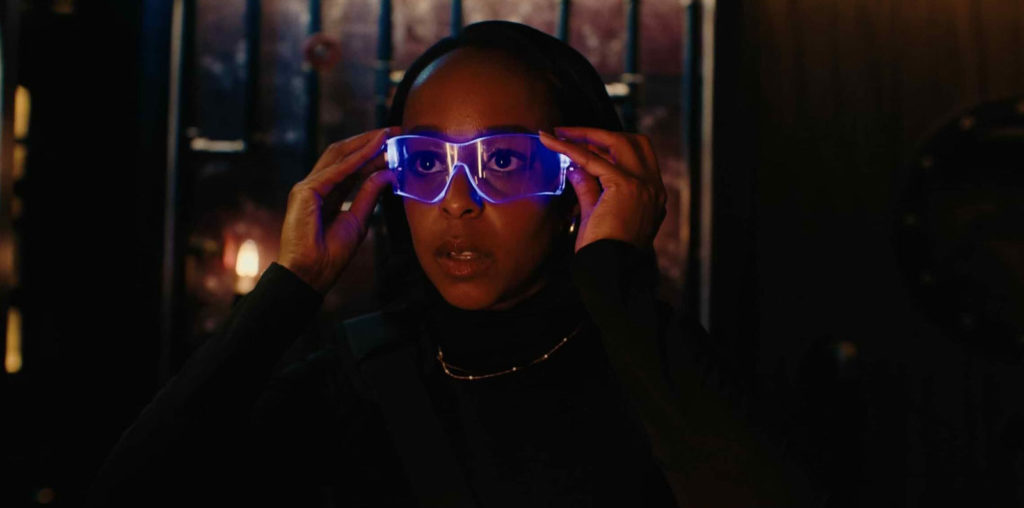
Cinema has always been a powerful medium, captivating audiences worldwide with its ability to tell stories, provoke thought, and stir emotions. However, in recent years, the lines between traditional cinema and digital entertainment have become increasingly blurred. With the rise of streaming platforms, interactive experiences, and gaming, the entertainment landscape has transformed in ways that challenge the very definition of how we consume stories.
One particularly interesting development in this shift is the influence of video games and online slots on the broader entertainment industry. These games, while traditionally viewed as distinct from cinema, have found ways to weave narrative, visual storytelling, and even cinematic techniques into their mechanics. As a result, what was once a clear distinction between film and gaming has become a dynamic and overlapping ecosystem.
The Rise of Streaming and Interactive Cinema
Over the past decade, streaming platforms such as Netflix, Amazon Prime, and Disney+ have revolutionized the way we watch movies and TV shows. Audiences are no longer bound by the constraints of movie theaters or scheduled television programming. Instead, they can access content anytime, anywhere. This shift has prompted filmmakers and studios to rethink how they engage with viewers, leading to the development of interactive films and series that give audiences the power to influence plot points and outcomes.
One notable example of this trend is Netflix’s Black Mirror: Bandersnatch, an interactive movie where viewers make choices for the main character, determining the storyline’s direction. This fusion of gaming mechanics with cinematic storytelling has opened the door for a new form of entertainment that caters to a generation raised on video games.
While interactive cinema has yet to become the norm, it’s clear that the boundaries between film and video games are dissolving. The influence of digital media, particularly games, is reshaping how stories are told in the film industry.
The Cinematic Appeal of Video Games
Video games have long been recognized as a form of entertainment that combines storytelling, art, and technology. Modern games like The Last of Us, Red Dead Redemption 2, and God of War have been lauded for their cinematic qualities—rich narratives, emotionally complex characters, and stunning visuals that rival those of blockbuster films. Many games now feature cutscenes and scripted moments that feel like they could belong in a movie.
This cinematic approach to game design has made video games more accessible to wider audiences, attracting not only gamers but also film enthusiasts who appreciate storytelling. The crossover between these two mediums is evident in the increasing number of film adaptations of popular video games, such as Tomb Raider, Sonic the Hedgehog, and the upcoming The Last of Us series.
Moreover, the integration of well-known actors into video games, such as Keanu Reeves in Cyberpunk 2077 or Norman Reedus in Death Stranding, further blurs the line between Hollywood and the gaming industry. With the rise of motion capture technology and the use of real actors to portray game characters, the visual and narrative overlap between these two forms of media is stronger than ever.
Online Slots: A Surprising Intersection of Cinema and Gaming
One area where cinema’s influence on digital entertainment is less expected, yet increasingly evident, is in the world of online slots. Traditionally seen as simple, luck-based games, online slots have evolved significantly in recent years to incorporate elements of storytelling, cinematic visuals, and immersive experiences.
Modern online slots often feature detailed narratives, high-quality animations, and soundtracks that mirror the production values of mainstream films. Many slot games are themed around popular movies and TV shows, offering players the chance to interact with characters and settings from their favorite franchises. This fusion of cinema and gaming provides a new form of engagement for audiences who enjoy both mediums.
For instance, there are online slots based on blockbuster franchises like Jurassic Park, The Dark Knight, and Game of Thrones, where players can immerse themselves in the cinematic worlds of these iconic films and shows while enjoying the thrill of gambling. The visual and auditory elements in these games are designed to create an experience akin to watching a movie unfold before the player’s eyes, but with the added dimension of interactivity. If you’re curious to explore some of these games, see here: https://br.parimatch.com/pt/casino/slots/

The Future of Digital Entertainment: A Blend of Film and Gaming
As digital technologies continue to evolve, the relationship between cinema and gaming will likely deepen. Virtual reality (VR) and augmented reality (AR) are already pushing the boundaries of what is possible in both industries. VR films, where viewers are placed directly into the action and can look around a 360-degree environment, are creating immersive experiences that rival traditional film viewing. Similarly, VR games offer a heightened level of immersion, making players feel as though they are truly part of the story.
In addition, the growing popularity of platforms like Twitch and YouTube, where gamers livestream their experiences to millions of viewers, is further merging the worlds of gaming and cinema. Some gaming streams have even taken on a narrative form, with streamers using storytelling techniques similar to those seen in films to engage their audiences. This “gamified” storytelling is offering a fresh take on how stories are experienced and shared.
As the distinction between playing a game and watching a movie becomes increasingly blurred, the potential for innovation in digital entertainment is limitless. The cross-pollination between these mediums offers exciting opportunities for filmmakers, game developers, and audiences alike.
Conclusion
The intersection of cinema and digital entertainment has created a dynamic, ever-evolving ecosystem where stories can be told in new and exciting ways. From interactive films to cinematic video games and even online slots that draw inspiration from Hollywood blockbusters, the entertainment industry is becoming more interconnected than ever before.
As we look to the future, it’s clear that the fusion of film and gaming will continue to shape how we experience stories. Whether it’s through VR, interactive cinema, or the latest online slot games inspired by popular movies, the possibilities are endless. And for audiences, this means more opportunities to engage with the stories they love in ways that are more immersive and interactive than ever before.


